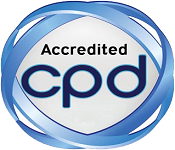
Biography
Biography: Yasser Rashed
Abstract
Autoimmune Hepatitis (AIH) is a progressive necroinflammatory liver disease associated with significant morbidity and mortality. Mainly affecting females, AIH has a varied clinical presentation from minor symptomatology to acute liver failure. Mutation of complement factor 4 found in patient with AIH. Selective Ig A deficiency found in patient with AIH. Multiple lines of evidence suggest that hepatic viral infections may trigger autoimmune reactions, including AIH in immunologically susceptible hosts. Molecular mimicry between the proteins of both HBV and HCV and human nuclear and smooth muscle auto antigens has been identified and may explain production of autoantibodies in these viral infections. In Europe, approximately 10% of pediatric HCV infections are associated with anti-LKM1 autoantibodies. As noted earlier, susceptibility for AIH in the is associated with the HLA class II allele DRB1*1301 that has been associated with protracted HAV infection and development of AIH. Thus, it is possible that the DRB1*1301 allele may confer susceptibility for AIH by encoding class II. How to diagnose AIH, How to treat, When you stop treatment?

